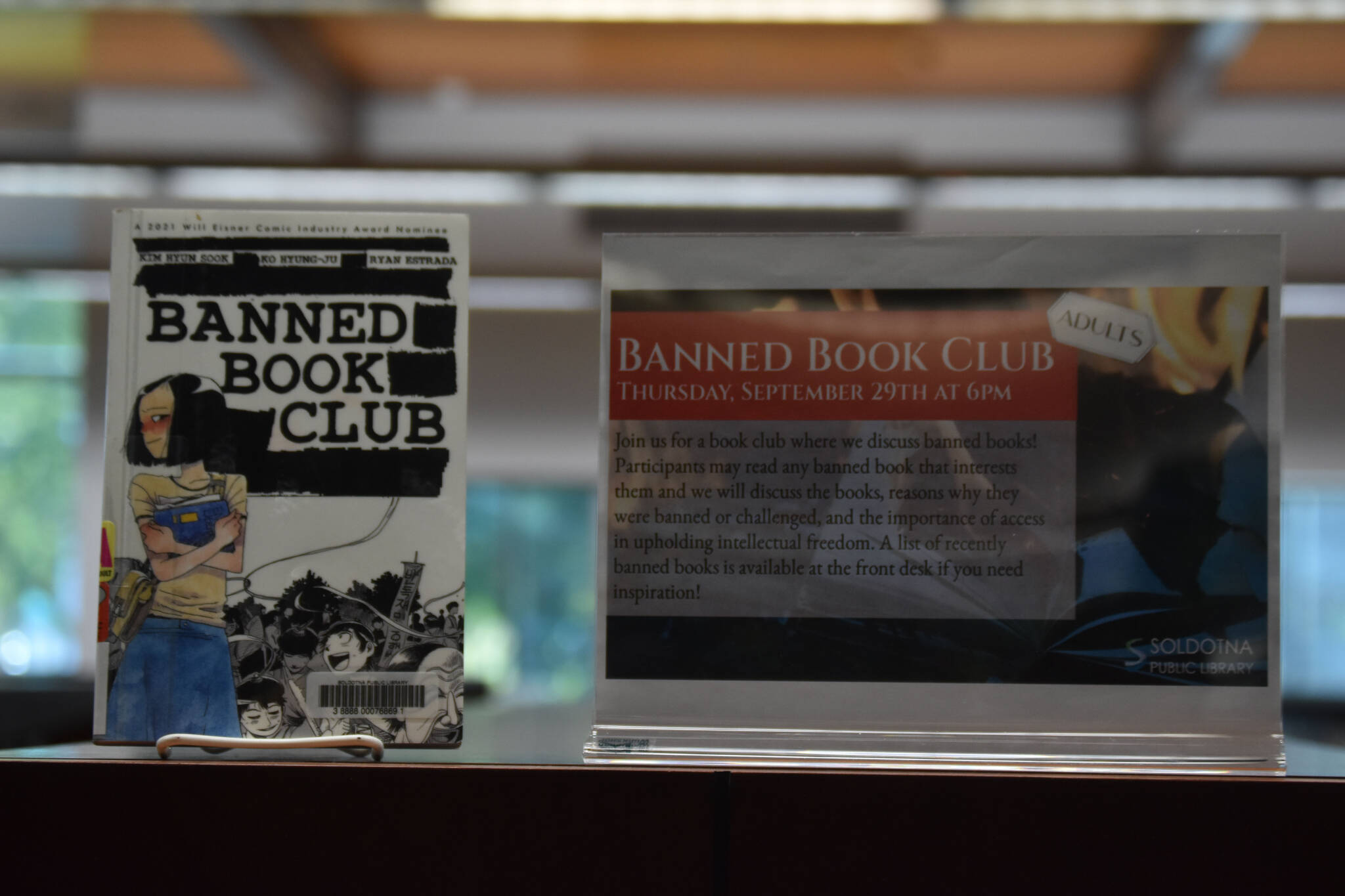The Soldotna Public Library will be hosting a Banned Book Club on Thursday at 6 p.m., welcoming members of the public to read books that have been challenged or banned in libraries or schools and discuss why.
Books have been challenged or banned for their content nationwide. Banned Book Week, which was held last week, celebrates literary freedom and draws attention to the reasons these books are finding themselves controversial.
The Kenai Peninsula Borough has not been exempt from the trend of challenging library content. Both the City of Kenai and the Kenai Peninsula Borough School District drew the ire of residents last fall after separate incidences of what some called censorship.
The City of Kenai delayed approval of a grant that the city library received to purchase health and wellness materials, while KPBSD’s assistant superintendent rerouted a shipment of books a warehouse worker deemed suspicious. In both cases, the challenged material ultimately ended up at their respective libraries.
City Librarian Rachel Nash said the Banned Book Club is happening this year at the library for the first time, a response to people in the community asking why books are banned.
Staff at the library decided that hosting that conversation would be a good idea.
“Some community members had expressed interest, and we decided to go with it,” she said.
Nash said that other book clubs have been hosted at the library before, but in a more rigid sense where a book was assigned and everyone would read it. The library is experimenting with this more open format, where a theme is presented and attendees are encouraged to bring a book of their choosing for group discussion.
The event is open to everyone. It is an adult event, but teens are welcome.
“We would love to see everyone who’s interested participate,” Nash said.
If the format is well received, Nash said other open club programming could be put on in the future with other themes or genres.
Nash listed some commonly banned books, including “To Kill a Mockingbird,” “Looking for Alaska,” “Gender Queer,” “Lawn Boy,” “All Boys Aren’t Blue,” “The Hate U Give,” “The Absolutely True Diary of a Part-Time Indian” and “The Bluest Eye.”
“There do seem to be more themes of LGBTQIA+ and the BIPOC community,” she said. “Those are the ones that are, from the last year, most commonly challenged.”
Nash said her favorite banned book is “The Giver,” by Lois Lowry.
“It’s a dystopia. In that world, there is no pain or fear or sadness — they try to remove all of that — but there’s also no joy. There’s no color and there’s no choices. It definitely addresses some tough topics,” she said.
She described reading it as a child, as a teen and as an adult and taking different lessons from the book each time.
Having conversations about banned books, Nash said, “comes to just what’s at the heart of our American democracy.”
“We have the First Amendment, and that guarantees us the freedom of speech and it also guarantees us the right to access this kind of information, whether it’s data or whether it’s fiction,” she said.
She pointed to libraries as one of the few remaining places where anyone can walk in and read anything they choose.
“If you stop carrying titles on a certain topic, that reduces our ability to problem-solve in the future,” Nash said. “Reading about other people can help bring us together because then we understand them. If we read a point of view that’s different from our own, we get to understand it. Even if it’s not going to change our mind about it.”
Banned Book Club, and the larger Banned Book Week that took place last week, are centered on raising awareness of how important it is to protect intellectual freedom, our right to choose what we read and our right to choose what our children read, Nash said.

